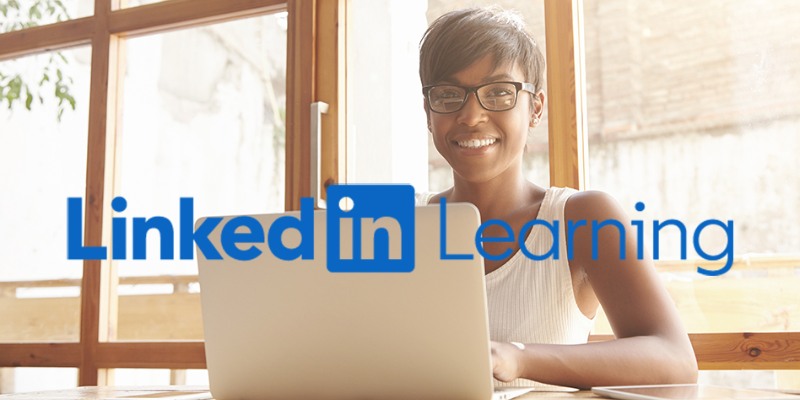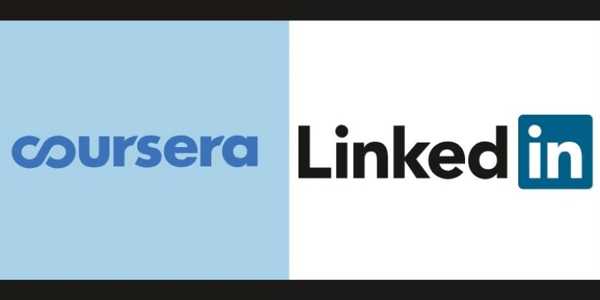Career & Education
LinkedIn Learning Vs. Coursera: Which Boosts Your Resume Faster?
Many people want a better job, a raise, or a way out of unemployment. Some say the secret is taking online courses. But with so many platforms out there, which one helps your resume stand out faster — LinkedIn Learning or Coursera? Let's break this down in plain terms and talk about what matters when it comes to boosting your resume and your chances in the job market.
Many people want a better job, a raise, or a way out of unemployment. Some say the secret is taking online courses. But with so many platforms out there, which one helps your resume stand out faster — LinkedIn Learning or Coursera? Let's break this down in plain terms and talk about what matters when it comes to boosting your resume and your chances in the job market.
Who These Platforms Are For
LinkedIn Learning is primarily designed for individuals seeking concise, career-focused lessons. It's best if you already know your job path and need additional skills to enhance your application. It's tied to your LinkedIn profile, so your learning history is automatically displayed on your public resume.

Coursera, on the other hand, is designed for individuals seeking more academically oriented training. You get long courses, sometimes from top universities. You can even get full degrees if you pay for it. But it's not quick or lightweight. You'll be reading, watching, writing, and sometimes stressing like a real student.
Now ask yourself: are you just trying to add spice to your resume, or are you trying to gain deep knowledge in a field? That alone can help you pick.
Which One Helps You Get Noticed on LinkedIn?
Let’s not pretend — most recruiters check LinkedIn first. It’s where they go hunting for talent.
If you complete a LinkedIn Learning course, it shows up right on your profile. That means hiring managers and recruiters don’t have to dig deep to see what you’ve been doing. It’s right there — and that visibility alone can put you ahead of other job seekers.
Coursera doesn't have that automatic link. You'll have to add courses to your profile manually. Even when you do, the name of a Coursera course may not look as sharp or quick to understand as something simple like "Excel for Data Analysis – LinkedIn Learning."
In terms of fast wins on LinkedIn, LinkedIn Learning takes the crown.
What About the Quality of Courses?
Colleges or large universities typically develop courses on Coursera. That means they go deep. You learn the why, not just the how. This is ideal for individuals entering a new field or transitioning to a completely different career.
LinkedIn Learning? It's more hands-on. You watch videos, do some light quizzes, and you're done. The instructors are often professionals rather than academics. So, the courses may not be deep, but they're straight to the point.
If you need to learn a skill fast, for a job interview or work task, LinkedIn Learning helps you get there. But if you're chasing a profound career shift or want to impress in academic or research-driven roles, Coursera offers more depth.
How Long It Takes to Finish
Time is everything when you're unemployed or trying to switch jobs. LinkedIn Learning courses can be completed in just a few hours. Some people binge-watch a whole course in one day.
Coursera? You'll need to set aside weeks. Maybe even months. And if you fall behind, it gets worse. Assignments pile up. You might even quit halfway due to Stress or burnout.
So, if speed is your goal, LinkedIn Learning wins again.

Cost and Value
LinkedIn Learning offers a one-month free trial. After that, you pay a flat monthly fee and take as many courses as you want. That’s good value if you learn fast and stay focused.
Coursera offers free versions of some classes, but most serious courses require payment. You usually pay per course. Some cost as much as a few hundred dollars. And if you go for a complete program or certificate path, expect to pay more.
But here's the twist: Coursera certificates carry more weight in academic and government job circles. If you claim to have taken a class from Yale or Duke, even on Coursera, people will take you seriously. That kind of name drops better in specific fields.
Still, for private companies and startups, what matters is the skill — not the brand name. They care what you can do, not who taught you. LinkedIn Learning is generally sufficient for most jobs, except in fields such as healthcare, technology research, or education.
Which Looks Better on a Resume?
Let’s stop the guessing. Recruiters often spend less than 10 seconds looking at your resume. They scan for keywords and skills. They don’t have time to Google every course provider.
A bullet point that says:
“Completed Agile Project Management – LinkedIn Learning”
Looks just as strong as:
“Agile Project Management Specialization – Coursera (University of Colorado)”
Unless the person hiring you attended that same school or values academic titles, the Coursera name won't make much of a difference. And if your LinkedIn profile already shows that you're learning and improving yourself, that says a lot.
Both platforms let you download certificates, but let’s not lie — most recruiters won’t ask to see them.
What Hiring Managers Are Looking For
Hiring managers want someone ready to work. Someone who learns fast. Someone who can handle tasks without being spoon-fed every step.
They’re not impressed by your 30 certificates. They care if you can apply what you’ve learned.
This is where some people fail. They chase courses and badges as if it were a video game. However, when asked to demonstrate what they know, they fall short.
The real flex? Take what you learn — from either platform — and show how you used it in a project, in your portfolio, or at work.

Use Both If You Must, But Start With One
No rule says you can’t use both platforms. But don’t jump between them without a plan.
If you need to upgrade your resume this week, take a few LinkedIn Learning courses and add them to your profile. Then, apply for jobs immediately while your profile is fresh and active.
If you're preparing for a more extended job search or entering a new field, consider signing up for Coursera and following through. Select one specialisation, complete it thoroughly, and utilise it to secure interviews.
The Real Question You Should Be Asking
It’s not just about which platform is better. It’s about which one fits your current goal.
Do you want fast results? Visibility on LinkedIn? A simple way to boost your profile today? Then, go with LinkedIn Learning.
Do you want in-depth knowledge, structured lessons, and a university name on your resume? Then go with Coursera.
Don't just follow what others are doing; instead, take the initiative. Don't just sign up for courses because they're trending. Know what you need and get it. Your resume should tell a story — not a scattered list of half-finished ideas.
In a world where skills beat titles, learning platforms are tools. But the real power lies in how you use what you’ve learned. Choose wisely.
Trending









